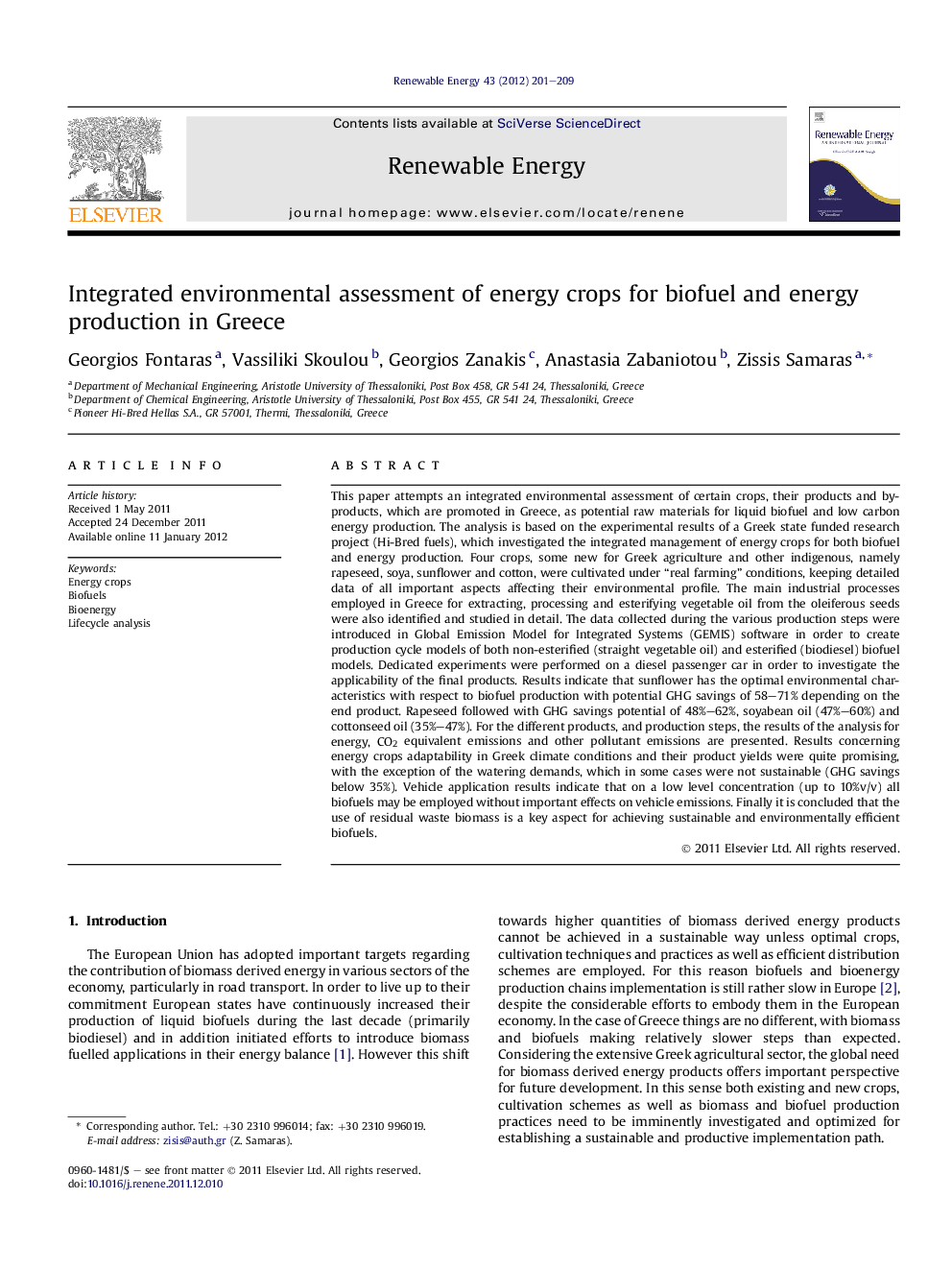| کد مقاله | کد نشریه | سال انتشار | مقاله انگلیسی | نسخه تمام متن |
|---|---|---|---|---|
| 301063 | 512496 | 2012 | 9 صفحه PDF | دانلود رایگان |

This paper attempts an integrated environmental assessment of certain crops, their products and by-products, which are promoted in Greece, as potential raw materials for liquid biofuel and low carbon energy production. The analysis is based on the experimental results of a Greek state funded research project (Hi-Bred fuels), which investigated the integrated management of energy crops for both biofuel and energy production. Four crops, some new for Greek agriculture and other indigenous, namely rapeseed, soya, sunflower and cotton, were cultivated under “real farming” conditions, keeping detailed data of all important aspects affecting their environmental profile. The main industrial processes employed in Greece for extracting, processing and esterifying vegetable oil from the oleiferous seeds were also identified and studied in detail. The data collected during the various production steps were introduced in Global Emission Model for Integrated Systems (GEMIS) software in order to create production cycle models of both non-esterified (straight vegetable oil) and esterified (biodiesel) biofuel models. Dedicated experiments were performed on a diesel passenger car in order to investigate the applicability of the final products. Results indicate that sunflower has the optimal environmental characteristics with respect to biofuel production with potential GHG savings of 58–71% depending on the end product. Rapeseed followed with GHG savings potential of 48%–62%, soyabean oil (47%–60%) and cottonseed oil (35%–47%). For the different products, and production steps, the results of the analysis for energy, CO2 equivalent emissions and other pollutant emissions are presented. Results concerning energy crops adaptability in Greek climate conditions and their product yields were quite promising, with the exception of the watering demands, which in some cases were not sustainable (GHG savings below 35%). Vehicle application results indicate that on a low level concentration (up to 10%v/v) all biofuels may be employed without important effects on vehicle emissions. Finally it is concluded that the use of residual waste biomass is a key aspect for achieving sustainable and environmentally efficient biofuels.
► Integrated assessment of biofuel production in Greece was performed from cotton, sunflower, soya and rape.
► Vehicle tests showed that all biofuels in blends up to 10%v/v have negligible effects on emissions.
► Sunflower oil has the best environmental performance followed by rapeseed, soybean and cottonseed oil.
► In Greece the CO2 savings potential of biofuels can be lower than the European limits mainly due to watering.
► The use of waste biomass is key for achieving environmentally efficient biofuels.
Journal: Renewable Energy - Volume 43, July 2012, Pages 201–209